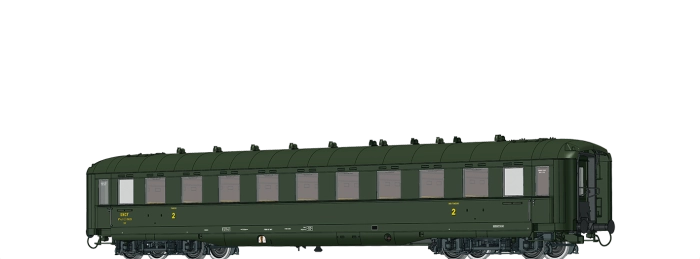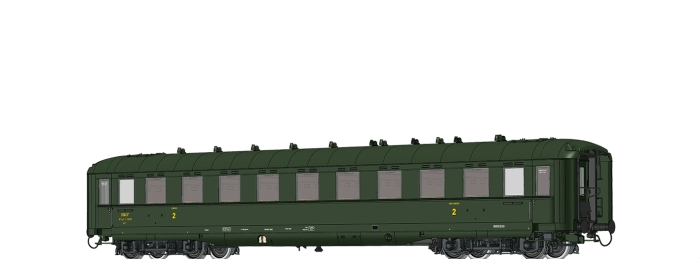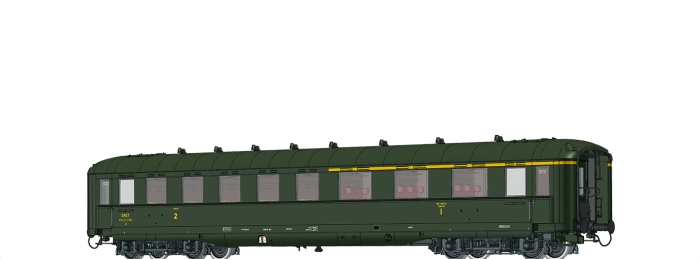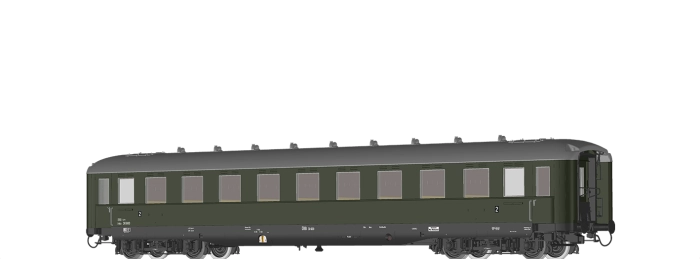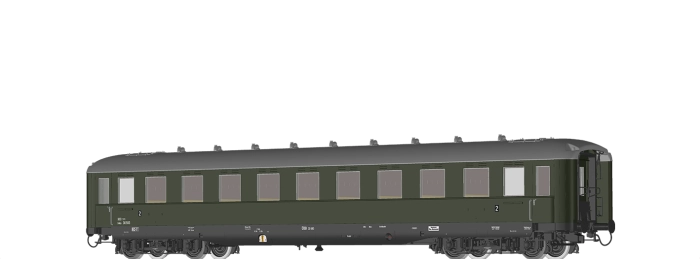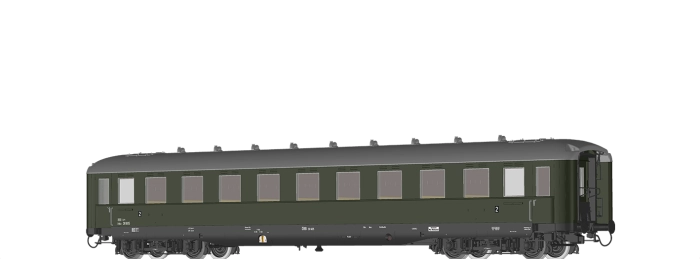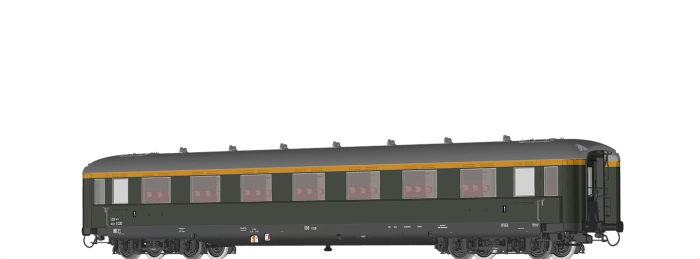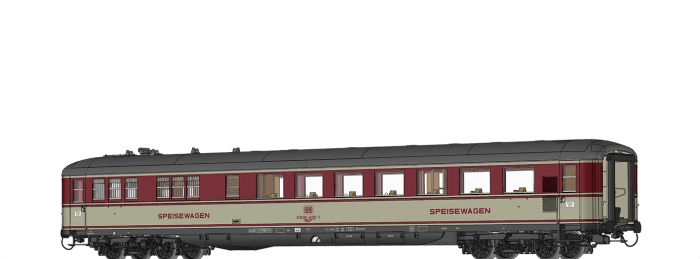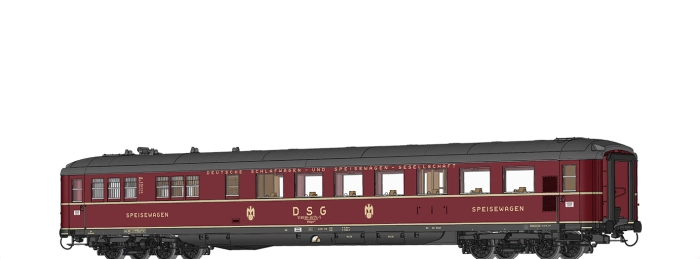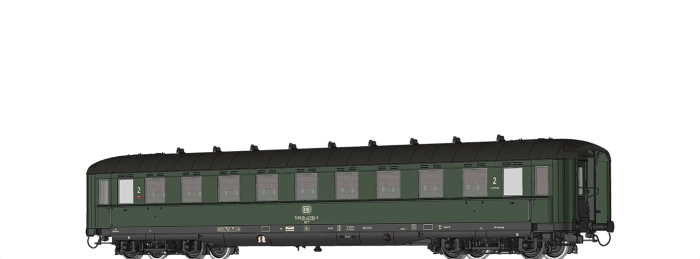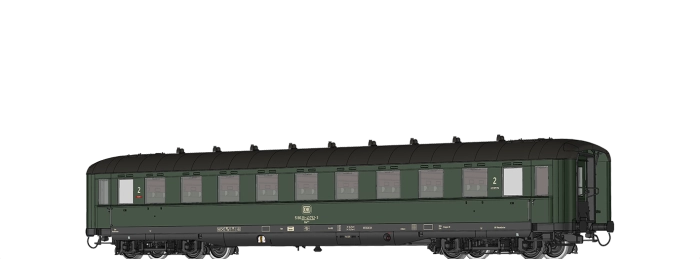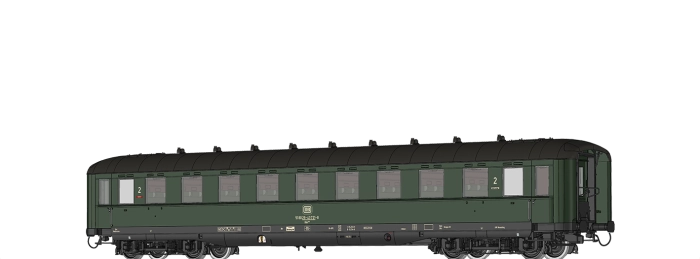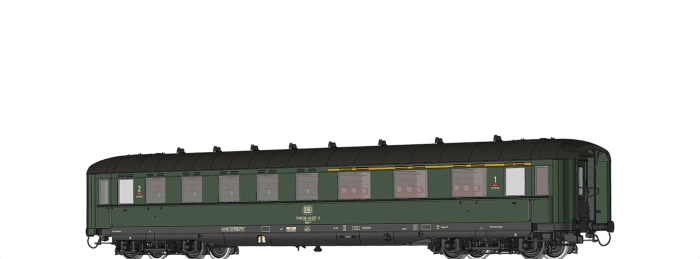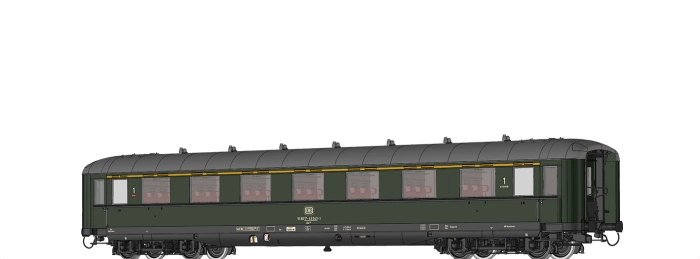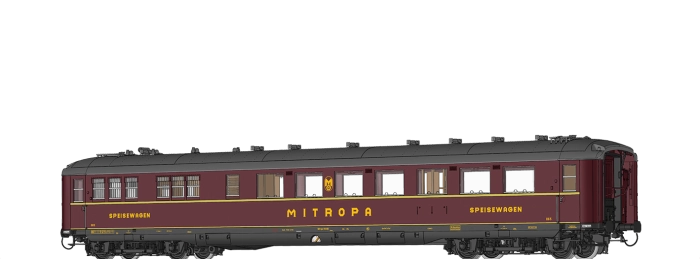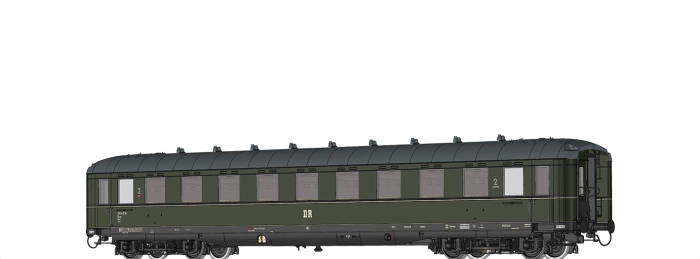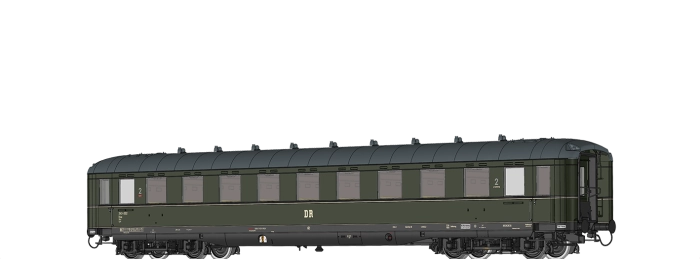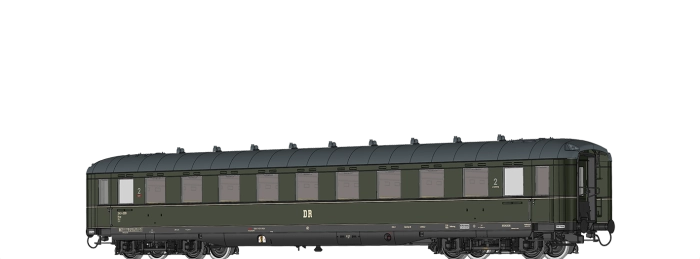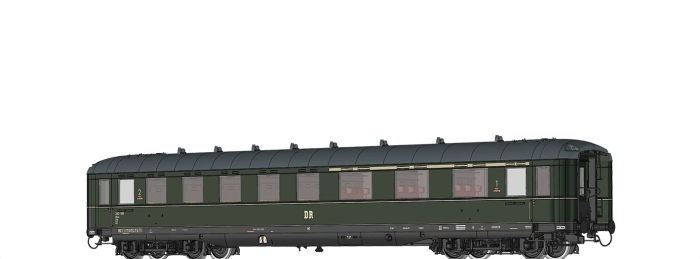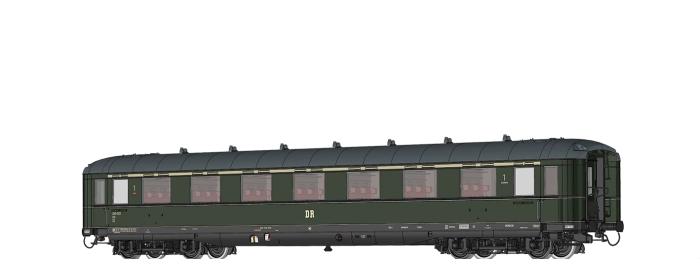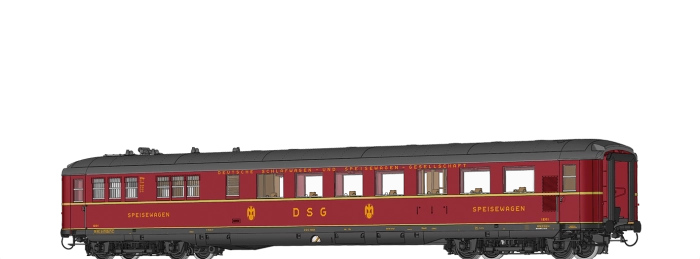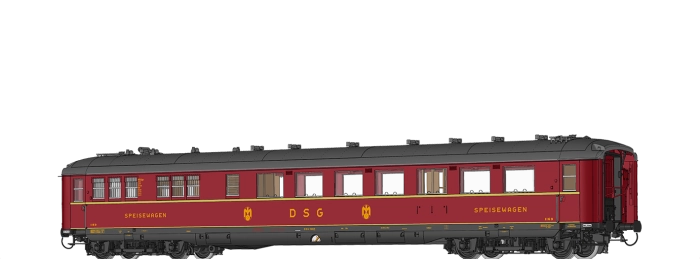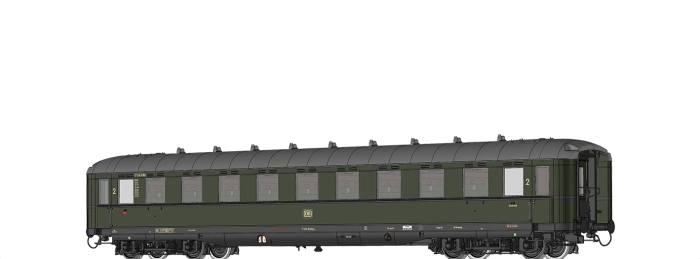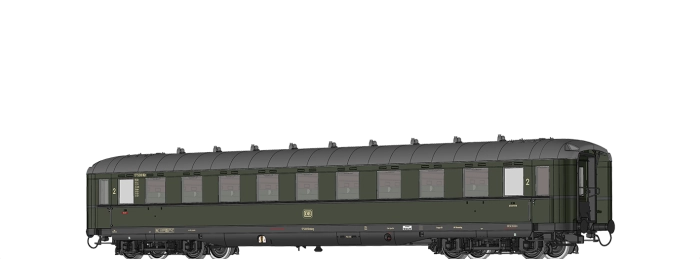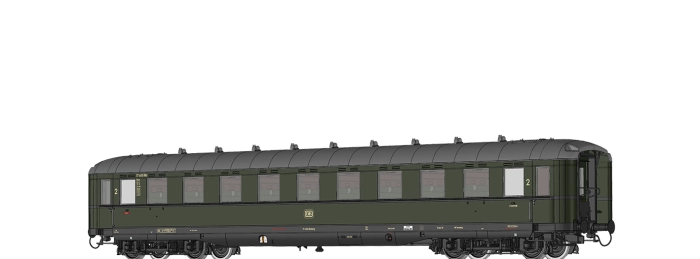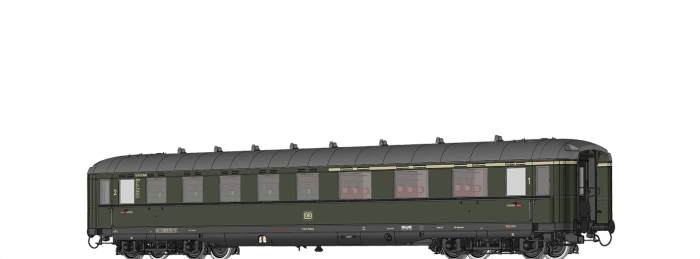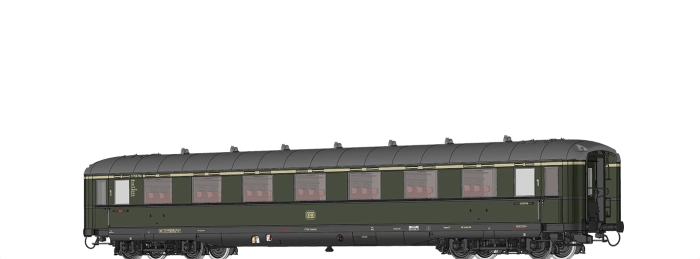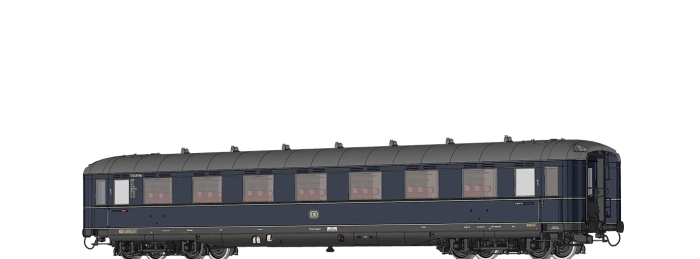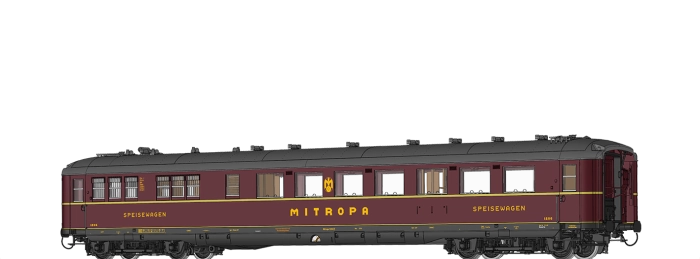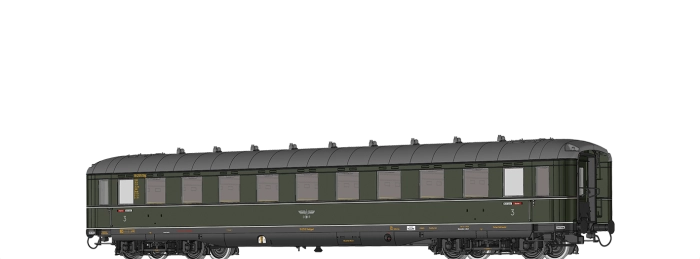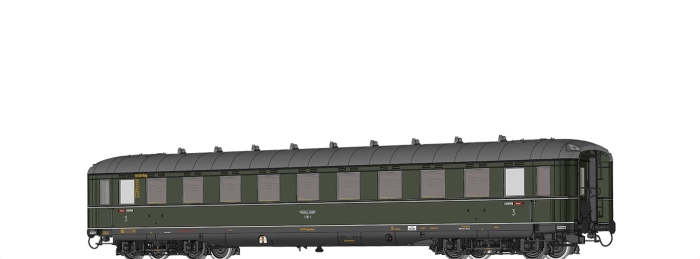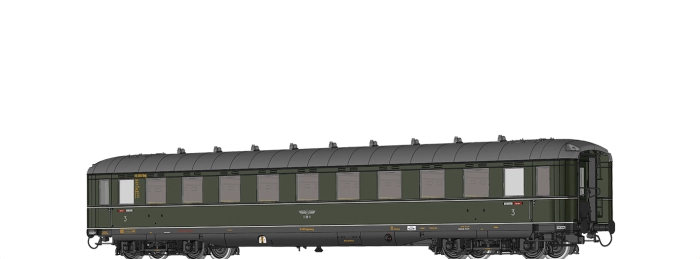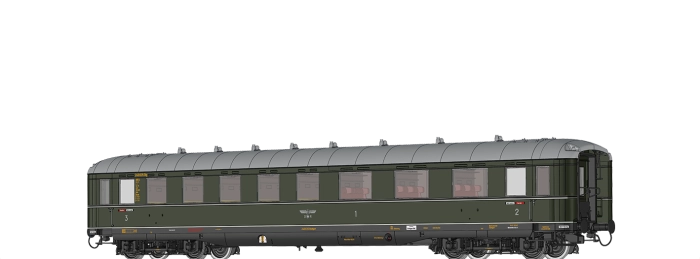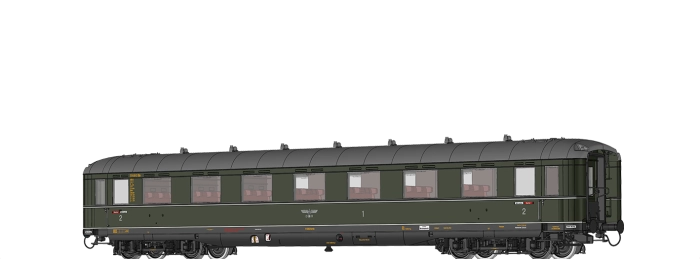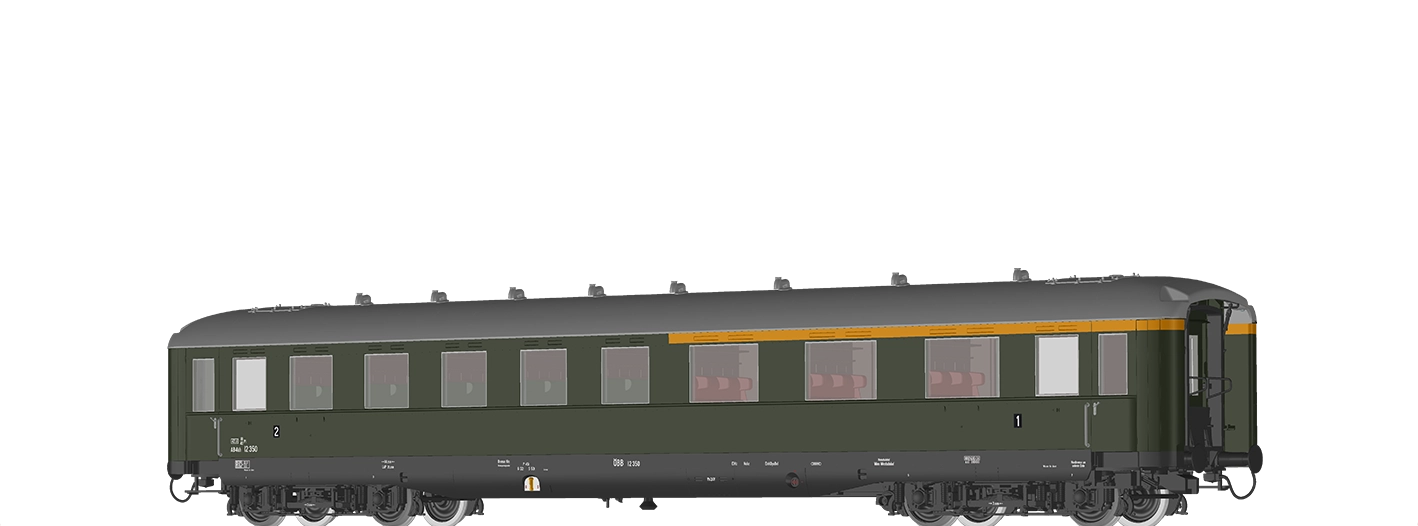
Passenger Coach AB4üh ÖBB
Road no.: 12 350
Model details
- Wheelsets in toe bearing
- True to original axle box cover
- Brake shoes in wheel plane
- Extra mounted steps
- Individually mounted axle brake rod
- Multi-part brake system
- True-to-original interior fittings
- Wheel chocks attached
- Complete replica of the vehicle floor
- Interior lighting prepared or built-in
- NEM-standard short-coupling
Info about the original
With the introduction of the type 39 express coaches, the National Railway aimed to usher in the age of high-speed transport and increase the speed of its passenger trains. To achieve this goal, it was necessary to reduce the factors causing air turbulence in previous wagon types. As with the type 35 wagons, the type 39 relied even more heavily on welding technology. However, the designers’ primary goal was to make the vehicles’ exterior surface as smooth as possible. In particular, the areas under the frame and around the bogies had previously caused a lot of drag, so it made sense to clad these parts of the vehicle with side panels. Thus, the eponymous “Schürze” (side skirt) was conceived. However, the design also included additional features that were considered advanced for the time. The entrance doors were installed flush to the exterior. An intricate folding mechanism ensured that the doors, despite having a low pivot point within the carriage, opened in conjunction with the side panels. The side window frames also sat flush with the exterior skin. To accommodate the necessary window well, the carriages were about 40 mm wider below the window sill. In total, the National Railway planned to purchase over 1,000 carriages in various designs. Due to wartime constraints, however, only 543 production vehicles were delivered between 1939 and 1940 – 103 AB4ü-38s, 310 C4ü-38s, 65 ABC4ü-39s and 65 BC4ü-39s. Simultaneously, Mitropa initiated a revision of the WR4ü-35 design in collaboration with the wagon industry. Unlike the passenger carriages, this was not based on an entirely new design. Instead, the externally positioned entrance doors were adapted and the frame skirting was added. The recessed windows were retained, as was the differing window height. Due to the late delivery of these carriages, they were used rather infrequently until express train services were suspended due to the war. Many carriages were stored in supposedly secure railway stations to prevent their destruction. However, the fact that various wagons were written off as war losses indicates that this was not always successful. Most of the vehicles that survived the war without damage remained in West Germany. The Federal Railway predominantly utilised the carriages for its nascent F-train network, alongside other carriages requisitioned by the occupying forces. At the time, these streamlined carriages were considered the most modern and comfortable passenger carriages on German tracks. From the mid-1950s, increased deliveries of the new 26.4-metre wagons led to DB increasingly utilising these vehicles in its standard D trains. The streamlined “Schürzenwagen” would remain in DB’s vehicle fleet until the mid-1970s, at which point the last units were retired and transferred to reserve fleets for military and troop transport. The wagons remaining in service with the National Railway (DR Ost) were transferred to its modernisation programmes in the early 1960s and converted into so-called “modernisation wagons”. Some vehicles also remain in service with Austrian Federal Railways and SNCF.


